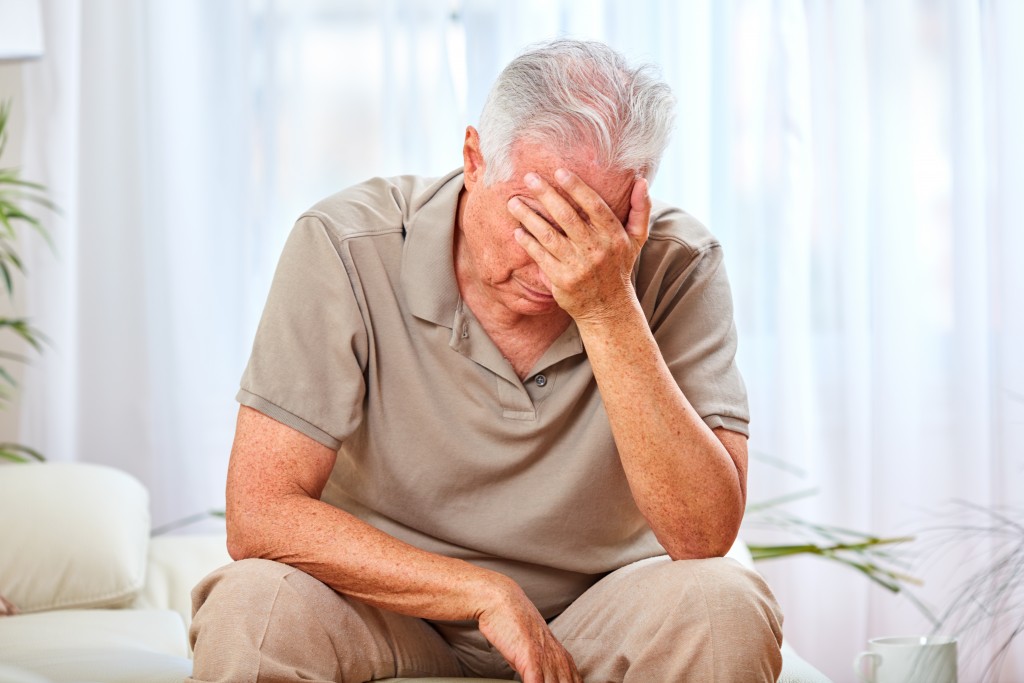COVID-19 is giving rise to another pandemic that is already affecting millions of people around the world: depression. Because of the restrictions enforced by governments to contain the virus, and as precautions by many to keep family members safe, the mental health of a huge portion of the population deteriorated.
Seniors who were most affected by the shelter in place orders.
Aside from the fear of becoming seriously ill, the elderly are now struggling with isolation and loneliness. In most states, businesses and offices are opening as things slowly go back to normal but, with the virus still spreading, older adults, who are vulnerable to the disease, are still advised to remain at home.
The Mental Health Consequence of Living Through a Pandemic
For many aging Americans, senior care facilities create a community where they can meet and interact with others who are like them. They play board games, sing and dance, create book clubs, watch movies, etc.
However, when outbreaks started becoming common in retirement homes, many had to close their doors. Seniors were forbidden to go out and family members were barred from coming in. Visiting performers and speakers were also no longer allowed.
In some places, residents were locked in their rooms for most of the day, only being permitted to go out for brief walks as a form of physical activity.
The situation of those living independently is worse. It is much harder to have social interaction during the day when everyone around them is in quarantine. They might even go a few days without speaking to another person.
Mental Health Among Seniors Before the Pandemic
Depression was already a prevalent problem among the 65 and older age group even before COVID-19. According to estimates, around 6 million older Americans are experiencing late-life depression, but only 10% receive the appropriate treatment.
Depression, if left unaddressed, causes serious medical conditions, including an increased risk of cardiac diseases. Some studies have found that seniors who were depressed were more likely to die following a heart attack.
Moreover, it may lead to suicide. Experts warn that the suicide rate among people between the ages of 80 and 84 is more than twice compared to the general population.
Loneliness is a leading cause of depression among seniors.
Preventing Depression in Care Facilities
Most facilities that care for the elderly have already developed strategies to keep residents engaged while social distancing. Some host hallway or doorway bingo where residents sit in their rooms while the staff calls a number from the hallway or using the overhead pager system.
There are also psychologists, nurses, and social workers regularly phoning residents for mental health checks. Those who may be struggling with depression are given follow-up attention.
Escaping Isolation Through Technology
Technology is the best weapon against late-life depression during the pandemic. Young people remain connected with their friends and the world at large through messaging apps and social media platforms. Seniors should be given the same opportunities.
Giving older adults an iPad, so they can access ebooks and audiobooks, watch videos on YouTube or Netflix, and, more importantly, call their loved ones, will make the lockdown feel a lot less isolating.
However, before leaving a device at your grandparent’s doorsteps, make sure that they know how to use it. Many of them are afraid of using electronic devices because of unfamiliarity, but they are capable of learning how to navigate their way around the digital world.
Sending Love the Old Fashion Way

Family members, who are not able to visit, should continue communication with loved ones. Aside from scheduling regular phone calls, sending a letter through mail or dropping off care packages will make them feel less lonely.
A simple card that says you are thinking about them will immediately brighten up their day. Encouraging children to send drawings, photographs, and scrapbooks will make them feel loved and connected despite the distance.
Also, send them books, movies, music, board games, card games that will keep them entertained throughout the pandemic.
Plan a Window Visit
During a window visit, family members stay outside, a safe distance away from their senior loved one. They usually interact with a glass window between them or the older adults sit on the porch while family members say hello from their cars. It still feels like a regular visit except there is zero chance of spreading the virus.
The pandemic has been tough for everyone, but more so on seniors. They have to deal with the fear of contracting the virus and possibly dying from it. Do not let them suffer from isolation and loneliness, too. Although it would not be easy, it is still possible to be connected from a safe distance.





